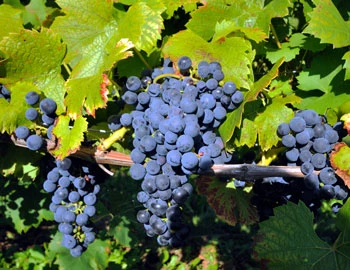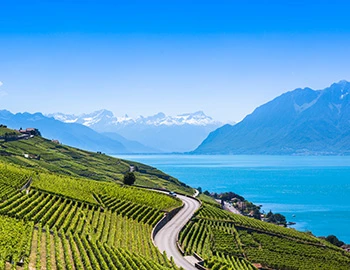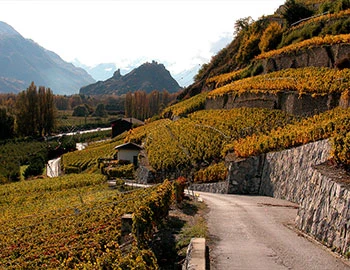
Pinot noir 1er cru Barrique Coteaux de Dardagny 2022
AOC Genève, Domaine les Hutins, 750 ml

| Grape variety: | Pinot noir |
| Producer: | Domaine Les Hutins |
| Origin: | Switzerland / Genève |
Description
Intense ruby when young with brilliant sparkling tinge. On the nose, wild berry aromas typical of Pinot Noir combine with fine well integrated oak. On palate this Pinot is relatively soft with an elegant style. The body is delicate despite a supportive concentration and tannins that carry the wine to a harmonious finish. Good length. This Pinot rivals the Burgundy appellations.
Attributes
| Origin: | Switzerland / Genève |
| Grape variety: | Pinot noir |
| Ripening potential: | 2 to 8 years |
| Drinking temperature: | 16 to 18 °C |
| Food Pairing: | Meat terrine, Roasted lamb gigot, Saddle of lamb fillet with herb jus, Brasato di manzo al Barolo, Wild fowl |
| Vinification: | short must fermentation, fermentation in steel tank |
| Harvest: | hand-picking |
| Maturation: | short cultivation, in partly new and used barriques/ Pièces |
| Maturation duration: | 12 months |
| Volume: | 14.0 % |
| Note: | Contains sulphites |
Pinot noir
Blueprint of the terroir
No other variety expresses its terroir as precisely as Pinot noir. It is a sensitive, fragile grape. But when it succeeds, it gives the world some of its very greatest wine plants. It especially excels in Burgundy, where it has been cultivated for at least 700 years. Even in the middle ages, it was considered so precious that it was kept separate from other grapes so as to not diminish its value. The finest examples are delicate and fragrant with aromas of cherries and red berries. With maturity, notes of forest floor, leather and truffles enter as well. An irresistible fruity sweetness still shines through, even after several decades. The Pinot noir does well in cool locations: in Switzerland and in Germany, where it is known as Blauburgunder and Spätburgunder respectively; in Alsace and in South Tyrol, in Oregon, New Zealand and Tasmania. Not least, it yields fantastic champagnes. It is a wonderful culinary companion. With its soft tannins and charming bouquet, it meshes with everything, from Güggeli and cheeses to fried fish.

Genf
Geneva: diversity at a high level
It is famous as a UN city, clock town and as a financial metropolis. However, Geneva is also increasingly recognized as a wine region. In 1988, Geneva was the first canton of Switzerland to establish a designation of origin (AOC). Since then, something almost revolutionary has occurred in the southwestern tip of Switzerland. With refreshing sparkling wines, aromatic Sauvignon Blancs, complex cuvées from Bordeaux varieties and many other specialties, Geneva vintners are demonstrating the treasure that lie in their terroir.

Switzerland
Switzerland – A small country with enormous diversity
Switzerland is famous for its banks, watches, and cheese, but not necessarily for its wine. The Swiss didn't invent wine, but they have been extremely open and curious to it. Wine culture arrived in what is now modern Switzerland via several routes: from Marseilles to Lake Geneva and the Lower Valais region; from the Aosta Valley through the Great St. Bernard Pass to the rest of Valais; from the Rhone through Burgundy, across the Jura Mountains to Lake Constance; and from Lombardy to Ticino, and then on to Grisons.


